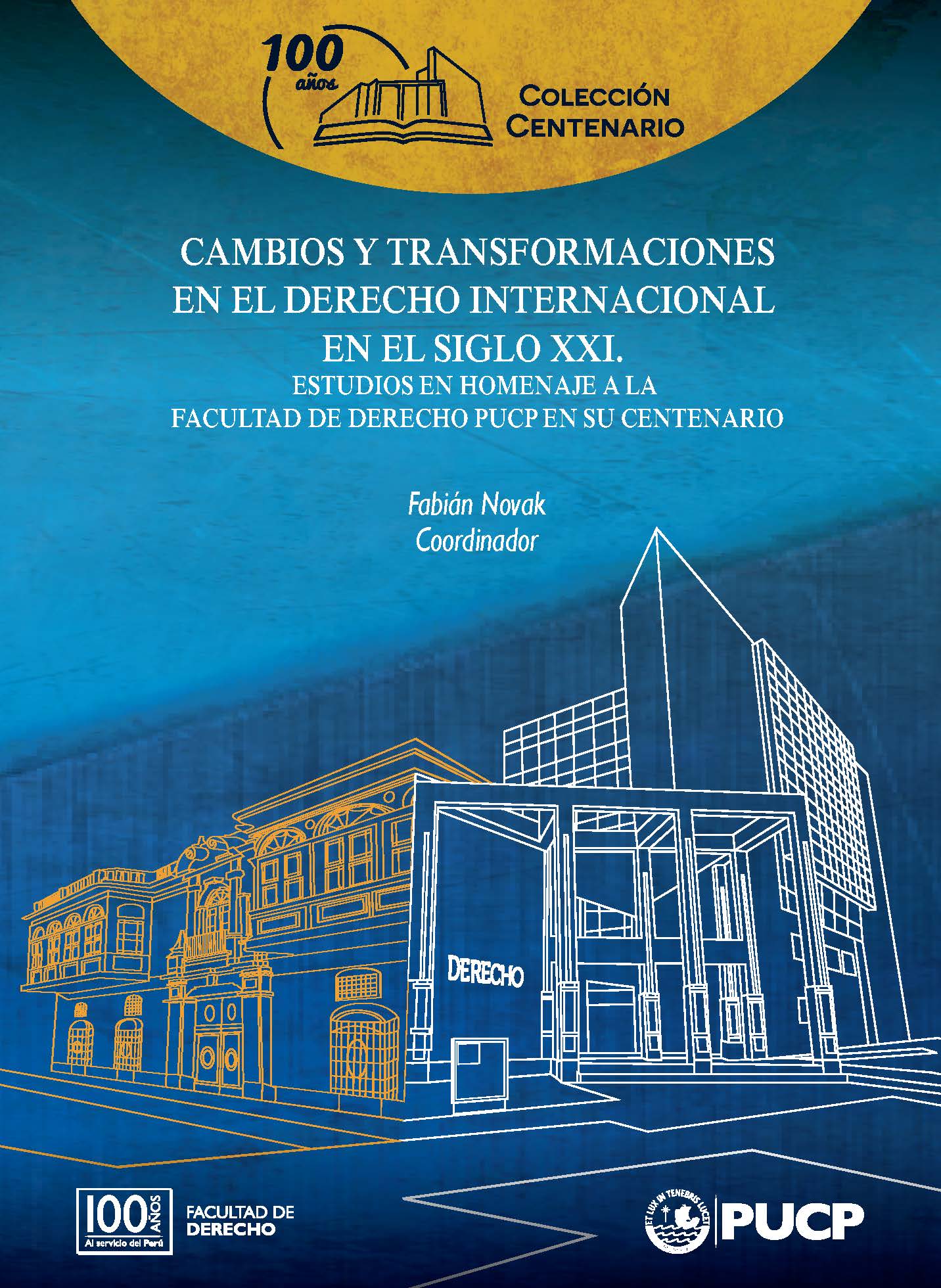El consentimiento al banquillo : un análisis actual de su naturaleza jurídica, su aplicación a la justicia internacional y la importancia que reviste para el Derecho Internacional
Acceso a Texto completo
Abstract
El presente artículo centra su análisis en el consentimiento como concepto
central y fundamental en el Derecho Internacional. Se aborda su naturaleza
jurídica general, su relación con principios del Derecho Internacional como el
pacta sunt servanda, consuetudo est servanda y la buena fe; y su clasificación
de acuerdo con la doctrina. Se define con rigurosidad el concepto y sus efectos
en la esfera internacional.
Asimismo, se analiza el consentimiento desde la perspectiva del Derecho
Internacional Procesal, particularmente desde la óptica de la Corte Internacional
de Justicia. Al respecto, se aborda las modalidades de acceso a la jurisdicción
de la Corte Internacional de Justicia, así como las prerrogativas que ésta tiene
para hallarse competente en relación con el consentimiento de las partes.
Por último, se analiza la relativización del consentimiento a manos de la Corte
Internacional de Justicia, proponiendo un análisis del caso del Laudo Arbitral de
1899, entre Guyana y Venezuela. Se concluye, al respecto, que la Corte generó
un equívoco al pretender analizar si el consentimiento manifestado por los
Estados había sido inequívoco. This article focuses its analysis on consent as a central and fundamental concept
in International Law. Its general legal nature is addressed, its relationship with
principles of International Law such as the pacta sunt servanda, consuetudo est
servanda and good faith; and its classification according to the doctrine. The
concept and its effects in the international sphere are rigorously defined.
Likewise, consent is analyzed from the perspective of International Procedural
Law, particularly from the perspective of the International Court of Justice. In this
regard, the modalities of access to the jurisdiction of the International Court of
Justice are addressed, as well as the prerogatives that it has to be competent in
relation to the consent of the parties.
Finally, the relativization of consent at the hands of the International Court of
Justice is analyzed, proposing an analysis of the case of the Arbitral Award of
1899, between Guyana and Venezuela. It is concluded, in this regard, that the
Court created a mistake by attempting to analyze whether the consent expressed
by the States had been unequivocal.
Temas
Collections
Except where otherwise noted, this item's license is described as info:eu-repo/semantics/embargoedAccess
Related items
Showing items related by title, author, creator and subject.
-
Cambios y transformaciones en el Derecho Internacional en el siglo XXI. Estudios en homenaje a la Facultad de Derecho PUCP en su centenario
Novak, Fabián (Pontificia Universidad Católica del Perú. Facultad de DerechoPE, 2019-08)La presente obra colectiva contiene diversos estudios agrupados en las categorías de derecho internacional privado, derecho internacional público, derecho penal internacional, derecho internacional de los derechos humanos, ... -
La relación entre el principio de legalidad en derecho penal internacional y la tipificación internacional de los crímenes de lesa humanidad: una perspectiva histórica
Pacheco de Freitas, José Augusto (Pontificia Universidad Católica del Perú. Fondo EditorialPE, 2019-10-16)This article reviews the processes of consolidation of the principle of legality and of the criminalisation of crimes against humanity in international criminal law from a historical perspective. It starts with the Nuremberg ... -
¿Estuvo el orden del comercio internacional de la posguerra dirigido al éxito mientras que el orden monetario de Bretton Woods establecido en 1944 estaba signado por el fracaso?
de Urioste, Ricardo (Pontificia Universidad Católica del PerúPE, 2023-11-14)This paper explores the reasons embedded in the original architecture of both the international trade and monetary regimes that determined different outcomes for both. It proposes that the original version of the Bretton ...




